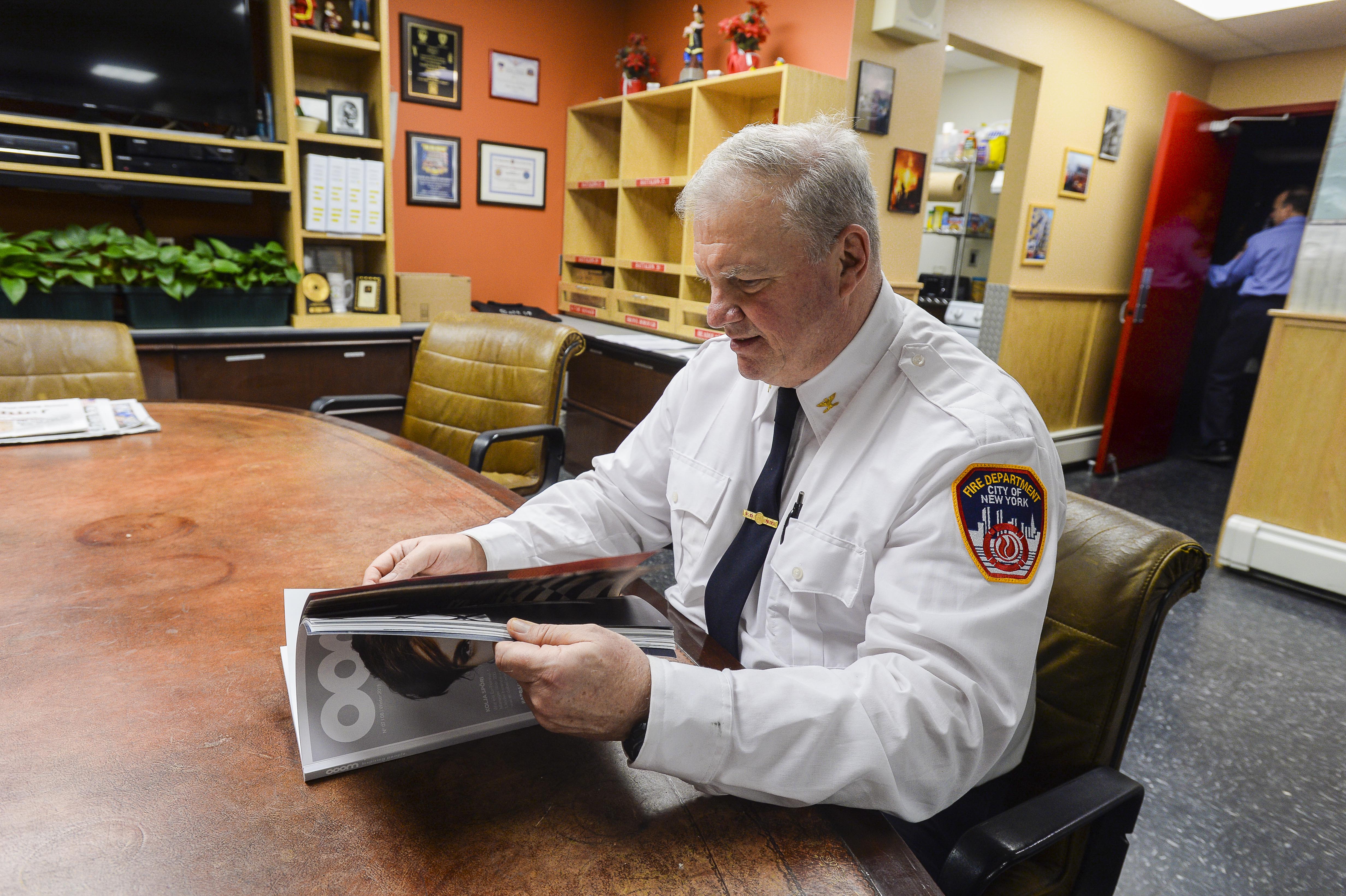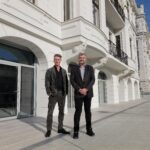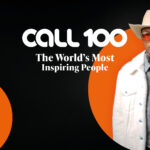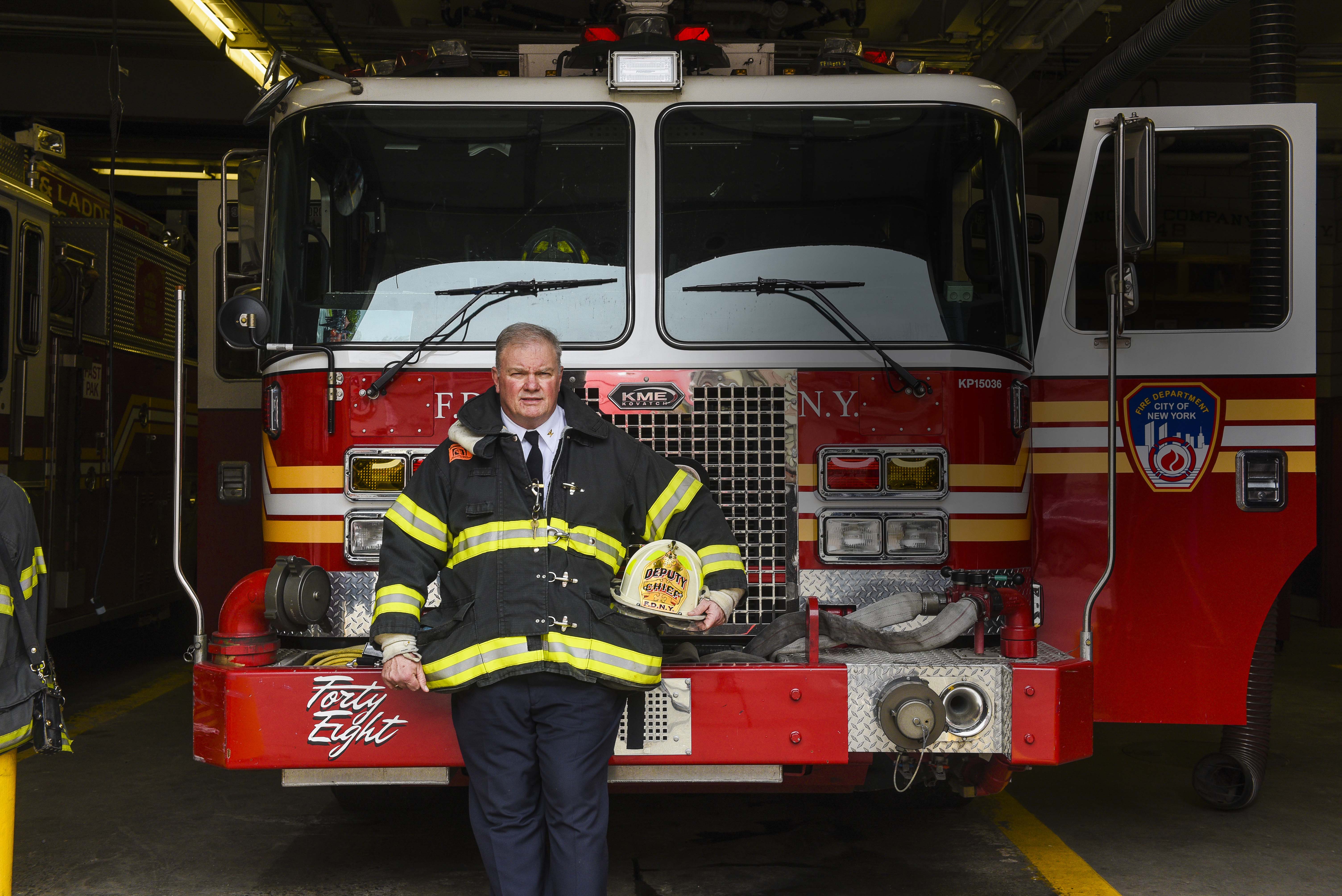
You tried to reach him?
I made it to the half-landing between the 5th and the 6th floor; then the debris was so heavy, I couldn’t move it anymore. I got on the radio and said, “Sorry Mike, I can’t help you.” I went back down the stairs; on the 5th floor, I found an elevator shaft. I thought, in desperation, “We have a lot of ropes with us, we could get down the elevator shaft.” I told them my idea, but one guy said, “What if we can’t get in from down below? We can’t just run back the stairs.” – “Ok, you got a point.” So, we were trapped. I called out over the radio, several times. People responded, looking for us, asked us questions to determine where exactly we were. It was like a needle in the haystack. They asked, “How did you get in?” – “We came in over West Street, took the B-stairways etc. – why can’t you find it?” We didn’t know it looked so bad from the outside. While we were trapped, we could hear fires crackling, smoke coming in, at one point there was an explosion right near where we were trapped. It’s the only time that Josephine Harris lost her composure. She was scared. I was very proud of my men. My youngest fireman, Sal D’Agostino, took off his coat and put it around her. He was talking to her, “Look, as long as we are with you, nothing is going to happen to you. We are going to protect you.” She trusted us. For the rest of our lives, she wouldn’t do anything without our consultation. She trusted us with her life and we followed through.
How long were you trapped in the debris?
We were trapped for about 4 hours. Finally, the smoke and dust cleared outside, the sunshine hit the stairway. Suddenly, we could see a beam of sunshine hit the stairway. There used to be 106 floors over our heads– now we can see blue sky, like we are on top of the WTC – and we were. We started to devise a plan to get out. We tied off one fireman with a rope, and he walked his way down and was able to make contact with another fireman. Those firemen started coming up. This one officer, whose name was Glenn Rowan, from Ladder 43, came up. We introduced him to Josephine; we needed some fresh firemen to carry her. I told him about Mike Warchola, who was on the 12th floor and Rowan looked at me and said that the, “12th floor doesn’t exist anymore.” I waited until all my guys were saved, and then Tommy Falco and myself left last.
How did you make it out of the debris?
We worked our way toward West Street. It was a very rugged trail; there was twisted steel all over the place. The steel was covered with dust, which made that slippery. Finally, we made our way toward West Street, because I felt that this is where the ambulances are. We were in a depression, about 30 feet (10 meters) down, below where West Street had been; they dropped down ropes, the guys had to climb hand-by-hand on the rope to make it to West Street. It got to the point where it was just me and Mike Meldrun, my chauffeur. He was beat up pretty badly, and says, “Cap, I can’t climb the rope.” I told him, “You see that hill? There’s your wife and kids on the other side. Climb the rope!” – and he did. He managed to overcome his pain. I ask for the command post, and hear that it is where the South Tower once stood, the command post is now a fire department pumper. I look up and finally get the attention of Chief Hayden, who sent me up in the first place. We looked at each other and both just started crying, “It’s good to see you!” – “It’s good to be alive!” Then I am sitting at the back seat of the ambulance with Tommy Falco. He turns to me and says, “Hey cap, how many guys do you think we lost here today?” I looked around and said, “Maybe a couple hundred” – I couldn’t believe it when those words left my mouth, because before that day, the biggest life loss we had was 12, in 1966. That day, it was 343, as I would learn later. That day, fathers were digging for their sons, brothers digging for their brothers, many of whom would never return home.
If Josephine Harris, who we carried downstairs, would not have fallen on the 4th floor, we probably would not have survived. Everything above the 5th and below the 2nd floor was completely destroyed.
Would you say that without the coincidence of meeting Josephine Harris on your way down, you wouldn’t have survived?
It’s a very real possibility. She definitely lived because of us. But then you could say that we lived because of her. She fell to the floor on the 4th floor and that was the one pocket that survived. I have a picture of that stairway. It’s amazing. From the 5th floor to the 2nd floor, the building remained intact. And our stairway was in the center of the building; you would think that it’s the worst place to be. The A-stairway and the C-stairway were destroyed.
How many people survived in this tower on that day?
Between both buildings – 22. In our building, the North Tower, there were 13 survivors.
When did you get your first chance to call your wife, to tell her that you were alive?
When you think back to the year 2001, I didn’t own a cell phone. I had a nephew who just got on the telephone to the fire department – they were looking for me and they could hear me on the radio. They would call Judy and tell her that they can hear my voice, that I’m alive.
She was sitting at home, watching what happened on TV?
Yes. All of our friends and neighbors up there were drawing conclusions that I was dead. There were 20-30 people at my house, people checking with her, dropping by with food etc. All my kids were at school. One friend took my son to play baseball to keep him out of the house.
Only 13 people survived the collapse of the North Tower. Thousands found their death that day.
In the following weeks, there were hundreds of funerals for colleagues of yours. How does one get through a time like that?
Just take it one day at a time. These funerals went on for, like, a year. There were a lot of families that didn’t want a funeral until some sort of remains were discovered. Some didn’t wait that long. They were having a memorial service, and if remains were found, they would have a second service. It was a difficult time and it was uncharted territory. We hadn’t been through anything like this.
One saturday, I remember, there were 12 funerals scheduled. Out of those 12, I was good friends with 7 of them. So, to pick and choose what funeral to go to, that was tough.
9/11 suddenly changed your entire life, probably your career, as well. We flew you and your wife to Vienna on November 3, 2001, where Mikhail Gorbachev honored you, on behalf of all firefighters at the World Awards as “Men of the Year.” Paul McCartney gave the laudatory speech. From the debris of ground zero to the festive Hofburg in Vienna – was that a surreal experience for you?
From my perspective, I couldn’t be a more ordinary man. Then, one day, the fire department called me and asked me to go to Vienna, Austria, to accept the World Award from the hands of Mikhail Gorbachev I asked, “You want me to go on a plane, fly across the Atlantic Ocean?” I didn’t even have a passport before that trip. The biggest trip for me was to go to the New Jersey shore.
So, every excuse I came up with, they found a solution for. Finally, I said, “Ok.” We got to the airport, and the first person I met was Buzz Aldrin, the second man on the moon. I thought, “That’s pretty neat!” The time in Vienna was just such a magical three or four days for Judy and me. Just seeing all those luminaries and celebrities, and meeting so many people who were so concerned for our welfare. It was a special time and I’ll never forget it.
For all of those people, you are a hero.
At the time it all happened, I already had 22 years in the NYC Fire Department. I had time to think about this over the years; it’s like my whole life led up to that moment – how would I respond under such stressful circumstances and how would I be able to execute my mission ? Not only for myself, but would I be a leader for my group and enabled them to perform under the most absolute conditions?
Every little thing I did in my career, I paid attention. Shortly after 9/11, I was in command at a small fire in Manhattan, and a crowd started to gather. It was a kitchen fire. When the firemen were leaving the building, the crowd of about 100 people started clapping. One of the young firemen came up to me and said, “Chief, I have never seen this before, what is going on?” I said, “They just figured out what you do for a living, what dangers you put yourself in in order to protect them. September 11 was the biggest urban search and rescue, ever in the history of the United States, except that most people participating in it were killed.
What has happened in your life since?
I did get promoted 5 days after 9/11. But not for what I did on 9/11. I happened to be on the Battalion Chief’s list; there is a promotion test that you have to take, and I got a very good mark. I had to deal with the new responsibilities, and on top of everything else, I had to deal with surviving 9/11. We were still under terrorist threat, so firemen were afraid to enter high-rise buildings. “If you come back,” they said to me “then I can go in too.” In 2007, I got promoted to Deputy Chief. I got assigned up here, where I am responsible for the Bronx and northern Manhattan.
Your children are now between 21 and 30. When did they realize that their father is an American hero?
At home, I am not a hero. At home, I’m “dad.” I do dad-things: I take care of the yard, I make sure the house is good, and I am a good father to them. But if anybody asks, I sit down and talk all day about it with them. I think that’s part of my obligation as a survivor.











